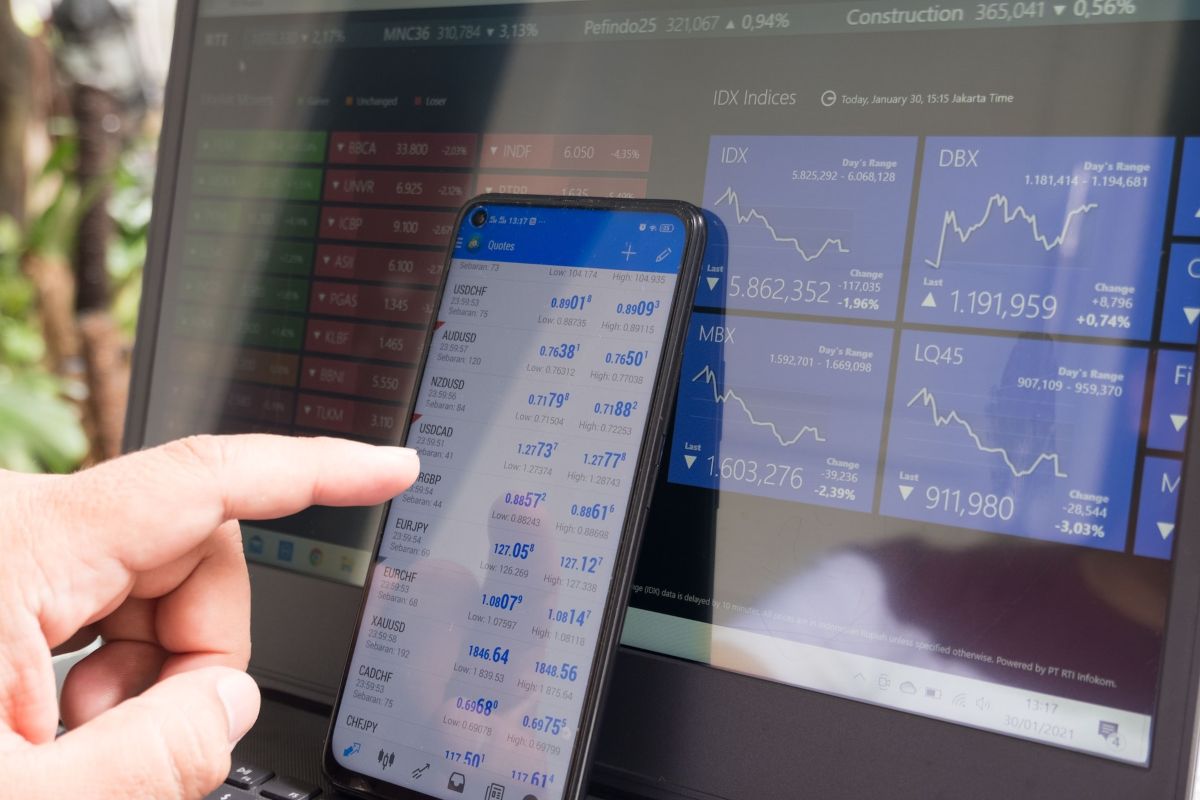Foreign Exchange, or “Forex,” refers to the purchasing or selling of one currency for another. Due to the fact that it is simple to enter without a lot of money and that people, companies, and nations all participate in it, it is the most extensively traded market in the world.
Demand for a particular currency at any moment will cause it to fluctuate in value in relation to other currencies. We wrote this detailed article on it to help you better understand what forex is and how it works.
What Is Forex Trading?

The buying and selling of foreign currencies is known as forex trading. It’s how people, companies, governments, and central banks in other economies pay for products and services.
You are trading forex whenever you make a purchase in a different currency or exchange money to travel. Nevertheless, the great majority of forex deals do not have a functional purpose. Speculative FX traders gamble on whether a currency’s value will increase or decrease relative to another in an effort to benefit from changes in exchange rates.
How Does Forex Trading Work?
Since forex is always exchanged in pairs, you will always swap one currency for another. For instance, while buying EUR/USD, you sell the USD and purchase the euro.
Your stake will gain value if the euro appreciates versus the dollar. The value of the euro will drop if it declined in value relative to the dollar. Currency markets never see an absolute loss because every time one currency increases, another weakens relative to it. No currency can appreciate simultaneously. A winner and a loser are certain in any situation.
Therefore, FX traders determine whether a currency appears to be weakening or strengthening versus another and then trade that pair appropriately.
Who Trades Currencies?
For a wide variety of players, currency markets are essential. For instance, any business that conducts business internationally will frequently need to swap one currency for another. As they work to maintain control over the currencies they are in charge of, central banks can also be engaged in active foreign exchange trading.
However, just ten banks account for roughly two-thirds of all forex trading volume globally, and they try to control the market. The forex market is very liquid and volatile due to its size. Due to the high market liquidity, there are numerous trading opportunities every day as a result of how quickly prices may fluctuate in response to news and transient occurrences.
Banks engage in 24-hour forex trading with one another in an effort to profit from these possibilities and reduce risk. A growing number of individual retail traders have been able to enter the forex market as a result of the expansion of leveraged trading in recent years.
Retail FX traders behave similarly to the 10 large banks, even though they may not be in charge of as much of the global volume. They predict when a currency may see a substantial price change and place traders appropriately.
How Are Currencies Traded?
The way currencies are purchased and sold is a significant distinction between the forex market and other markets (like equities and commodities).
Interbank trading, or the continuous buying and selling of currencies between banks throughout the world, determines currency values instead of dealing via a central exchange like the New York Stock Exchange or London Stock Exchange.
Banks open and close according to their respective time zones. This indicate that during market hours, the currency market is accessible. The three-letter code for each currency stated in a pair is used to identify it. Here is a list of several well-known currencies along with their associated codes:
| Currency | Code |
| US Dollar | USD |
| Euro | EUR |
| Japanese yen | JPY |
| British Pound | GBP |
| Canadian Dollar | CA |
| Australian Dollar | AUD |
| Swiss Franc | CHF |
3 Ways To Trade Forex

The majority of forex trades do not aim to exchange currencies but rather speculate about future price movements, similar to stock trading. There are three different way to forex trading which can be accommodating to trader’s type of goal.
1. Spot Market
The spot market is considered to be the main forex market where currency pairs are traded and exchange rates are determined in real-time, always based on supply and demand.
2. Forward Market
The forward market allows the trader to enter into a ‘private’ contract with another trader and agree on a exchange rate for an amount of currency for a future date instead of executing the trade right away.
3 Futures Market
In a manner similar to forward contracts, a component of futures is the agreements to buy and sell a commodity at a specific price at a future date. The two ways futures traders may approach futures contracts are hedging and speculating.
Advantages and Disadvantages of Forex Trading
Even while forex trading has the potential to be very successful and a great method to make money, there are still numerous drawbacks associated with it. What are the advantages and disadvantages of FX trading?
Advantages
- Simple to access: The forex is supported globally, making it simple for anyone all over the world to participate in the forex market. It is one of the financial markets with the biggest daily trading volume.
- Starting small: You may start trading with little sums even if you lack experience without putting a lot of money at risk.
- Decentralized: Similar to the cryptocurrency market, the FX market is decentralized. The trades are not governed by a central body. The market is decentralized, despite the fact that centralized organizations oversee some of the processes.
Disadvantages
- Highly volatile: Just like other assets and commodities, currencies are subject to a variety of outside influences, making them volatile. Therefore, more volatility involves greater risk.
- Required experience: As advised, you should educate yourself on how forex trading operates before starting. Additionally, you want to learn about the state of the economy today and how it can influence the currency pairings you plan to trade. It takes a lot of time and work to do this.
- Emotions: Despite your best efforts to maintain discipline, there may come a time when your feelings overpower you and cause you to approach your work in an unreasonable manner. As a result, you should be ready to accept losses in the same manner that you accept gains.
Read Also:
- Forex Trading: 4 Major Risks & How to Manage Them
- How To Effectively Auto Trade Forex
- How To Become A Successful Forex Trader?
Author: Eldin S
















